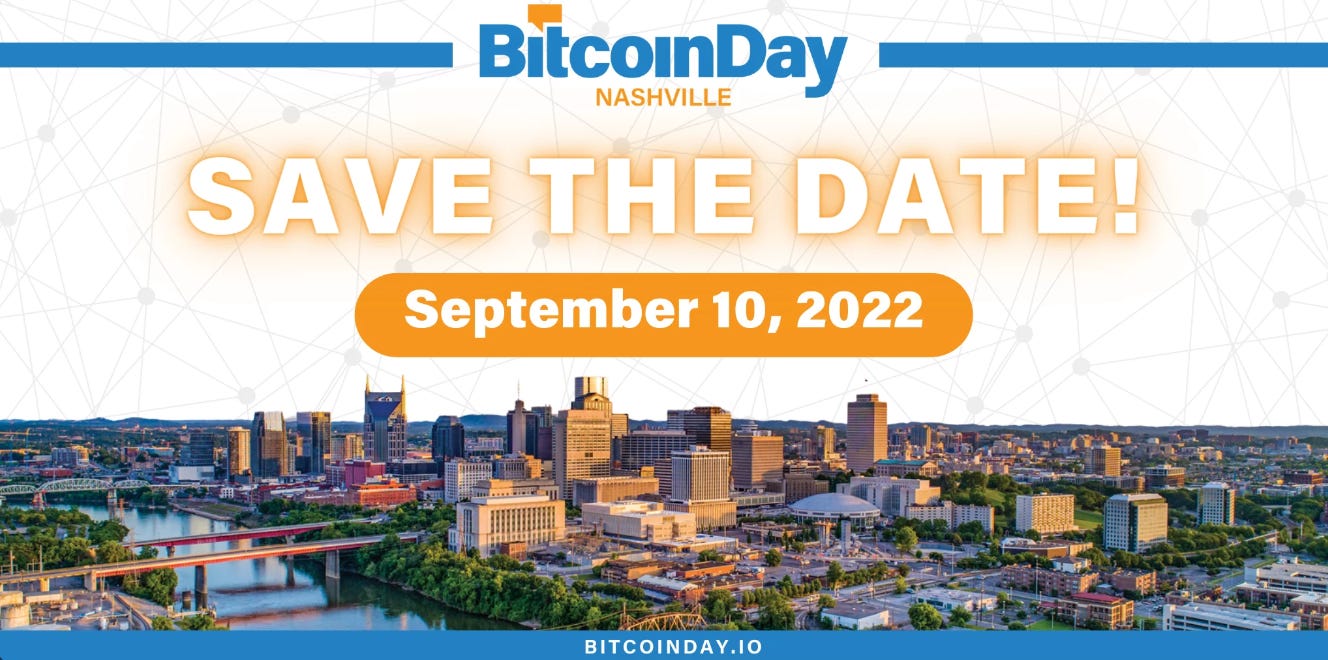TD₿: Against the Minimum Majority Measure by David A. Harding
TL;DR There is no way to objectively measure decentralization except by attempting to change Bitcoin’s consensus rules.
Hey Bitcoiners,
Yesterday, SEC Chairman Gary Gensler published a transcript of a speech he gave at the Practicing Law Institute’s SEC Speaks conference about the SEC’s role in regulating the broader cryptocurrency market.
The speech was titled, “Kennedy and Crypto,” a tribute to Joseph Kennedy, the first Chairman of the SEC, who was quoted as saying, “No honest business need fear the SEC.”
The speech gave more clarity on what Gensler believes should be and shouldn’t be considered a security. He reaffirmed his position that most cryptocurrencies today fit the definition of the Howey Test and, thus, should be regulated like securities.
I felt the best part of the speech was when Gensler posed a question to all the lawyers in the audience. He asked, “Do you represent any clients regarding their token projects? How exactly were you hired? Did you enter into an engagement letter? I’m going to guess that you had a client. I’m going to guess that you did not take on the work on behalf of a dispersed, unidentified group of individuals in an “ecosystem.”
What Gary is getting at here is, how decentralized is your project? If a foundation or centralized team can hire a lawyer to defend them in court, well, that doesn’t sound very decentralized at all, in fact, that sounds a whole lot like a company.
It is hard to argue against Gensler’s logic here, but how does one measure the decentralization of a project exactly? The answer is that you can’t, at least not objectively.
Most of the metrics frequently cited to measure decentralization, such as the number of nodes, developer commit listings, exchange trading volumes, etc., fall short because they are easily gameable, and their volumes can be faked.
David A. Harding wrote this blog post that discusses some of the flaws of the metrics people have used to measure decentralization in the past. (07/28/2017).
In the end, the only way to measure whether or not a project is sufficiently decentralized is by looking at outcomes. Only through attacking a project, and trying to change its consensus rules, can someone really know if it is decentralized or not.
Bitcoin has never changed its consensus rules in its lifetime. It has done so while constantly operating in a highly adversarial environment. Its track record speaks for itself — Bitcoin has proof of work.
In other words, the proof is in the pudding. Bitcoin is the only cryptocurrency in existence that has proven to be decentralized because only Bitcoin’s consensus rules have remained unchanged since its inception.
No honest business need fear the SEC —that’s true — but also no truly decentralized cryptocurrency needs to fear them either.
Tick tock next block,
Cory Klippsten
Sign up for Swan and receive $10 in free bitcoin today.
Quote of the Day
“The most important part of Bitcoin is its decentralization because if it were too centralized, then many of its other key properties, like its censorship resistance and its fixed supply, would be at risk. We can no longer trust a centralized monetary system.” - Wicked Smart Bitcoin, Bitcoiner
Job of the Day
Boxminer is looking for an On Site Technician for a new site container build out.
2.5mW to start with significant expansion potential. Equipment is purchased, and site prep is in the final stage with an electrical connection slated for September. If you love Bitcoin mining and want to get your hands dirty, then this job is for you!
Not your particular skillset? Check out all the Bitcoin jobs at bitcoinerjobs.com.
Featured Event
Tomorrow — tickets are still available to come to Bitcoin Day Nashville, which brings you top influential industry Bitcoin leaders and enthusiasts all under one roof!
The event goes all day from 7:30 am to 6:00 pm, and speakers include Robert Breedlove, Ansel Lindner, and more!
Not in town for this? Check out all the Bitcoin events at bitcoinerevents.com.
Meme of the Day





This recent talk is a great example of the importance of decentralization network needed for the Bitcoin protocol to remain secure.
https://www.youtube.com/watch?v=h-CA2wEFWPE
Some key insights from the video.
- 💡 The abuse of witness data and spamming the Bitcoin blockchain with arbitrary data is degrading the network and compromising its ability to function efficiently.
- 💡 The priority of the Bitcoin community should be to maintain the ability to run nodes, as they are essential for the decentralization and security of the network.
- 💡 The size of the op return data needs to be limited to prevent the abuse of the Bitcoin network and maintain the integrity of nodes.
- 💡 The potential collapse of the Bitcoin network due to a lack of motivated node operators is a significant concern that needs to be addressed to ensure the longevity and resilience of Bitcoin.
- 💡 The ability to verify transactions directly on the Bitcoin network is a key characteristic that separates Bitcoin from other cryptocurrencies and should be prioritized by the community.